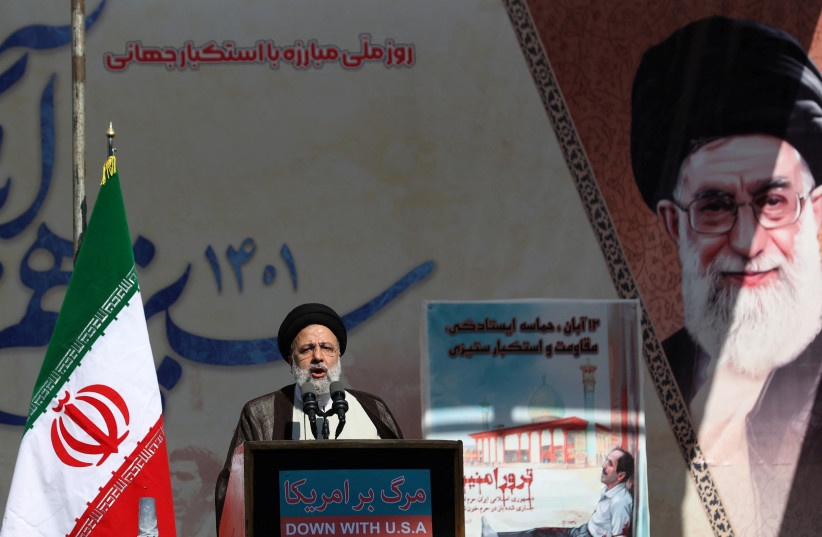Iran on Sunday warned Israel and the US of a regional escalation, while cutting its military conscription.
Iran-backed proxies have increased their attacks across the region; in Iraq and Syria, Iranian proxy groups attacked US forces a number of times over the last week, while Hezbollah increased its own attacks on Israel’s northern border in the last several days, and Iran-backed Houthis launched drones and cruise missiles over the Red Sea, intercepted by a US warship.
According to Iranian media reports, Iran on Sunday cut the military service for conscripts by three months. According to IRNA state media, there was a “statement by a subdivision of Law Enforcement Command of the Islamic Republic of Iran (Faraja)” explaining that a reduction in service duration “is part of a plan to overhaul the military service aimed at achieving more fairness.”
The report also appeared in Fars News and included a picture of smiling soldiers: “The decision was taken following a proposal from the General Staff of the Armed Forces and the approval of Supreme Leader Ayatollah Ali Khamenei, Commander-in-Chief of the Iranian Armed Forces,” the report at IRNA said, adding that “the revised service duration, which is now applicable to all conscripts, will be determined based on their specific service location and the nature of their assigned missions. It will range from a minimum of 14 months up to a maximum of 21 months.”
Iran warning of escalation against US, Israel

Over the last two weeks, Iran has been warning of escalation against the US and Israel and other Western countries, since Hamas launched its massacre attack on Israel, massacring 1,400 civilians. Iran’s foreign ministry warned as well that the region could spiral out of control if Israel’s operations in Gaza continued on to its next stage of a ground incursion.
For instance, The Guardian noted that “the war in the Middle East could expand in unpredictable and dangerous ways if Israel further increases its attacks on Gaza,” citing a senior diplomat in the UK. According to the report, “Mehdi Hosseini Matin, the Iranian chargé d’affaires, said that if this happened it was possible that UK interests would be affected….But he insisted Iran had no control over the ‘resistance forces’ in the region, who he said would make their own decisions independently of Tehran.”
On October 15, last Sunday, Iran warned of an escalation as well. Reuters noted at the time that “Iran warned Israel of escalation if it failed to end aggressions against Palestinians, with its foreign minister saying other parties in the region were ready to act, the semi-official Fars news agency reported on Sunday.” The US has also been concerned about escalation, positioning two aircraft carriers in the Mediterranean, while also sending air defenses to the region, the Pentagon said on Sunday.
Iran’s constant warnings stand in contrast to its apparent posture at home. Reducing military service doesn’t really broadcast a message of concern about a major conflict. Iran prefers to use its proxies, but it does not seem to believe the conflict will hit home.
As such, Iranian media on Sunday focused on other threats to Israel and the region, slamming the US role at the UN and trying to highlight cyber threats to Israel and internal divisions in Israel regarding a ground operation. Iran’s media also said that the US might be cautioning Israel against a ground invasion. It appears Iran is hoping the West can deter Israel, despite Tehran’s public threats in English.
